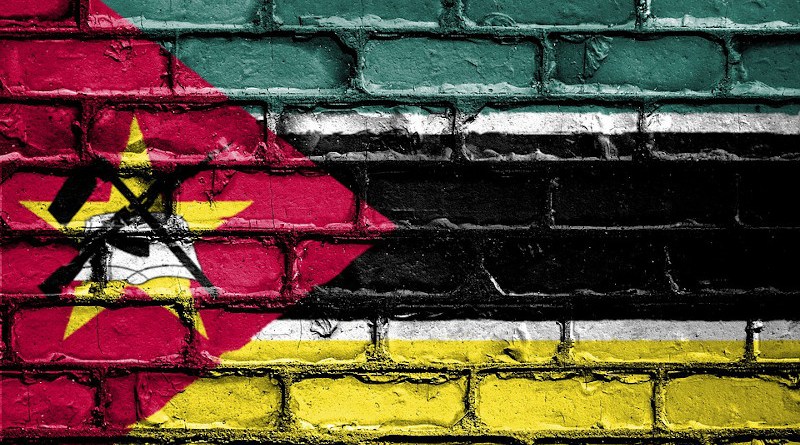 Chairperson of the Southern African Development Community (SADC) and Mozambican President Filipe Nyusi has to make consistent efforts toward addressing the systemic governance deficit, deepening political discontent, and widening socio-economic disparity is the surest possible way to maintain a long-term peaceful environment in Mozambique.
Chairperson of the Southern African Development Community (SADC) and Mozambican President Filipe Nyusi has to make consistent efforts toward addressing the systemic governance deficit, deepening political discontent, and widening socio-economic disparity is the surest possible way to maintain a long-term peaceful environment in Mozambique.
That was the message, at least, emerging from discussions via a videoconference held by the Centre for Strategic and International Studies (CSIS) of the United States. Hanna Tetteh, Special Representative of the UN Secretary-General António Guterres to the African Union (AU) and Head of the United Nations Office to the African Union, among other high-ranking speakers and experts expressed that the fact that Mozambique has mobilized its own resources, then supported by the Southern African Development Community (SADC).
Tetteh further suggested that the Mozambican government has to understand the primary internal challenges and analyze the root causes of rising armed attacks in the country, and with the possibility of spreading to other parts within southern Africa.
The United Nations (UN) Special Representative to the African Union explained that the insurgency situation in Mozambique is not advanced enough to justify international military intervention or peacekeeping operations. She argues that “there is still the opportunity to be able to use political processes to try and get people to come back from the brink and to address some of the root causes of the conflicts. And I think that in Mozambique, for instance, as a case in point is one of the situations where we’re talking about counterterrorism as opposed to a peacekeeping engagement activity.”
The support has to be given at the level of bringing “the political tools to bear to try and create solutions within those regions and deal with some of the government deficits that they have – lack of service provision, challenges with inequality – and, of course, at the same time, to provide a humanitarian response.” she emphasized.
According to the UN official, the various organizations have to converge tools and structures, through collaboration, in order to “be more proactive on the prevention as opposed to having to spend money on the peacekeeping.”
According to several reports, the armed violence in Cabo Delgado, northern Mozambique, has been going on for the past three and a half years but gained a new dimension on March 24 when armed groups first attacked the village of Palma, which is about six kilometers from the multi-million dollar natural gas projects. It has had devastating effects – displacement of approximately 700,000 people, created worsening a humanitarian crisis.
Many businesses in the region have badly been affected – Agostinho Vuma, the President of the Confederation of Economic Associations (CTA), estimated huge loss of US$209 million (€174.4 million) and the closure of 1,110 companies.
“The other 750 companies suffered indirect impacts due to their exposure in the various value chains, whose flow (of activity) was interrupted following the recent attack on Palma district,” the CTA president said.
In addition, he said that US$100 million (€83.4 million) corresponded to losses in agricultural production, US$95 million (€79.2 million) in physical capital and US$14 million (€11.7 million) in cash flow in the various value chains.
While deploring kidnappings of business people and their relatives – another crime that is already hindering investment and gives an image of an unstable Mozambique, Vuma mentioned ways to promote the sustainability of the business sector linked to natural gas megaprojects in Cabo Delgado.
According to the latest report on the Regional Economic Outlook: Sub-Saharan Africa, released April 15 by the International Monetary Fund (IMF) in Washington, Mozambique needs to address, as swiftly as possible, all kinds of internal conflicts, warning further that the conflicts have serious negative influences on the evolution of the country’s economy.
“What is going on in Cabo Delgado, in Palma, is just horrendous, all the more so because this latent insurgency has been identified as a threat several for many years,” Abebe Aemro Selassie said at a press conference, presenting the Regional Economic Outlook: Sub-Saharan Africa report in Washington.
That, however, International Monetary Fund (IMF) expects Mozambique to recover after establishing a peaceful environment and begins to make economic growth from the current rate of 2.8%, but the economic growth rate predicted to increase to 4.7% in 2022.
With an approximate population of 30 million, Mozambique is endowed with rich and extensive natural resources but remains one of the poorest and most underdeveloped countries in the world. The IMF has classified it as a Heavily Indebted Poor Country (HIPC).
Over the past few years, the economy has been shaken by a number of serious corruption scandals, and the government has achieved little results with its anti-corruption efforts. Mozambique is a country located in southeastern Africa bordered by the Indian Ocean to the east, Tanzania to the north, Malawi and Zambia to the northwest, Zimbabwe to the west, Eswatini (Swaziland), and South Africa to the southwest. It is one of the 16 countries, with a collective responsibility to promote socio-economic and political, and security cooperation, within the Southern African Development Community (SADC).


